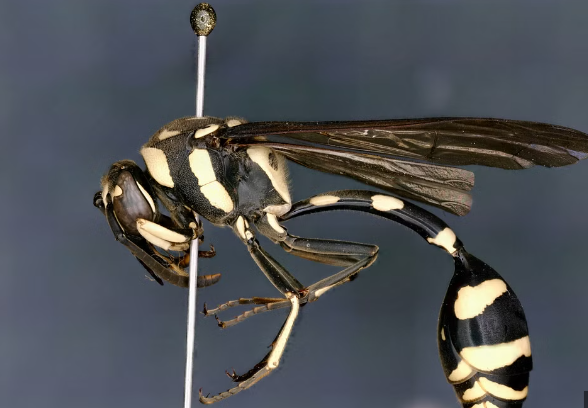Pseumenes siangensis : New Wasp Discovered in Arunachal Pradesh
Entomologists from the Ashoka Trust for Research in Ecology and the Environment (ATREE) have found a new species of potter wasp in Arunachal Pradesh, in the Eastern Himalayas. The wasp is named Pseumenes siangensis, after the Siang Valley where it was discovered. This discovery shows how rich the region’s biodiversity is and emphasizes the need for more research on insects in the area.
Significance of the Discovery
The Pseumenes siangensis is an important addition to India’s collection of wasp species. It is only the second species from this genus ever recorded in India. Naming it after the Siang Valley highlights how important local ecosystems are in supporting biodiversity.
Characteristics of the New Species
The wasp is about 30.2 mm long and has special body features and color patterns that set it apart from other similar species. Scientists collected these wasps using sweep nets during their fieldwork and then studied their physical features closely to confirm they were a new species.
Taxonomy and Distribution
Pseumenes siangensis belongs to the Eumeninae subfamily, commonly known as potter wasps. These wasps are mainly found in the Oriental region, and there are around 3,795 different species in this group, showing how diverse they are.
Ecological Role
Potter wasps play a key role in ecosystems. Their larvae feed on caterpillars and other insects that can damage plants, helping with natural pest control. The discovery of Pseumenes siangensis adds to the knowledge of these wasps and highlights how important they are for keeping ecosystems balanced.
Finding Pseumenes siangensis shows that there is still much to learn about the Eastern Himalayas, which remains an underexplored area. More research is needed to fully understand the biodiversity in this region, which is essential for planning conservation efforts to protect such unique species and ecosystems.
Month: Current Affairs - October, 2024
Category: Science & Technology Current Affairs




